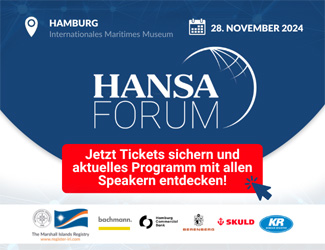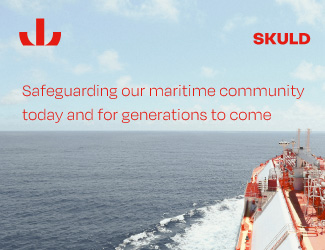
Performance reliability has become more relevant to shippers than the price of freight in today’s capacity squeeze, says Matthias Hansen, Senior Vice President Global Ocean Freight at Geodis.
As a freight forwarder, [ds_preview]the company went out on a limb to charter tonnage and lease containers itself to create some capacity for clients from Far East to Europe.
HANSA: How much longer will the extreme shortages in container shipping last? What’s the outlook for 2021 and beyond?
Matthias Hansen: Ocean carrier’s capabilities and speed in re-positioning the equipment to where it is needed is part of a solution to clear the container shortage situation. Some have taken strong actions already. We envision a return to normal in the mid/end of the second quarter, just before summer and before the traditional July-August spike. Based on our customers sales forecasts, demand will remain strong until April/May, even if some importers have decided to postpone some low value cargo orders to better times.
The idle fleet remains very low, which means capacity is fully deployed. Much depends on the opening-up of economies and people being more mobile again. Currently the balance between services and goods is very much on purchasing goods, as services cannot be consumed. The expenditure saved on holidays, bars and restaurants is being spent on household furniture, clothes or high-tech equipment.
Some forwarders including Geodis are stepping into the breach, chartering (mpp) vessels for Asia-Europe voyages with containers. This is a complex task for a non-vessel operating carrier. Will there be more forwarder involvement in vessel operations going forward?
Hansen: Our main objective is to offer solutions to our existing customers so that they can ship their freight in as timely and economical a way as possible. We are very experienced in chartering multi-purpose ships due to our large and well-established project logistics activities and to our chartering desk. For the leasing of empty equipment GEODIS works closely with several suppliers. We had prior relationships with suppliers due to our project logistics activity and certain assignments that we had completed, converting containers into lodging for the humanitarian aid sector.
How are cargo owners responding to the challenges? Will they alter their freight contracting strategy to obtain better rates and performance this year?
Hansen: The situation has certainly created a new kind of conversation with customers as well as new mutual commitments from both sides. Being able to anticipate and absorb cargo overflow with some flexibility is creating value in the continuity of the supply chain. The focus on reliable and sustainable supply chains has grown and has become more important than the pure price. (Michael Hollmann)
















